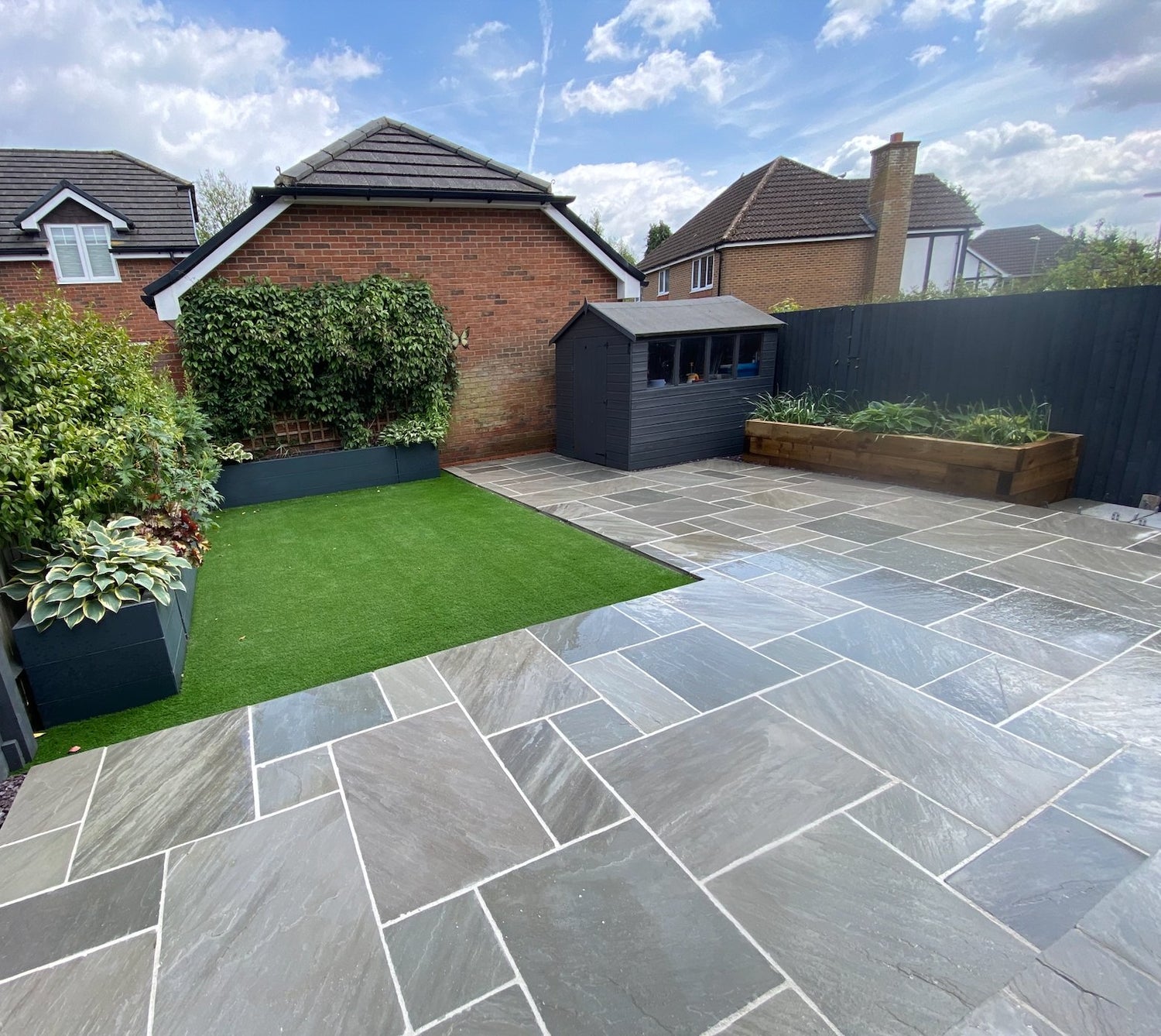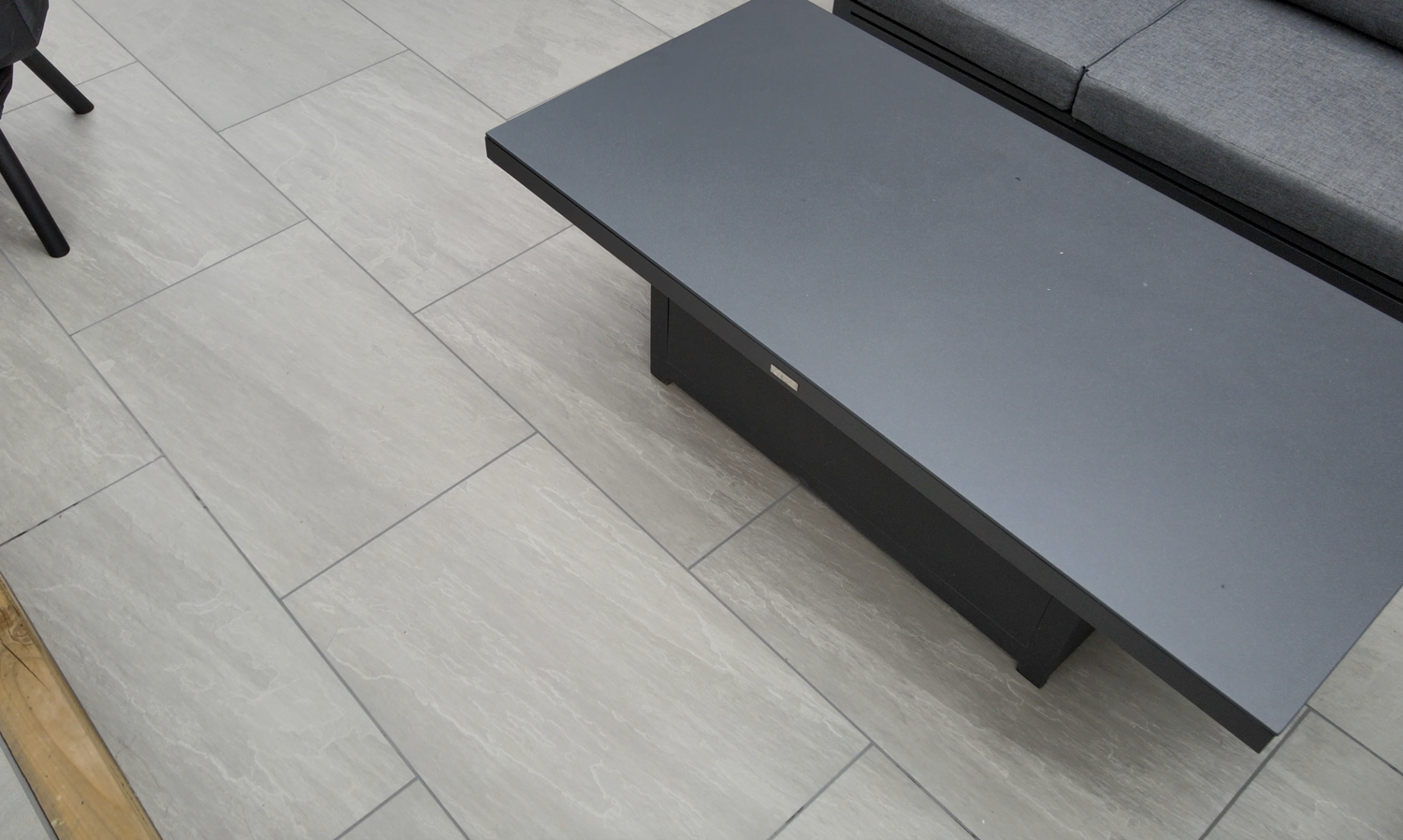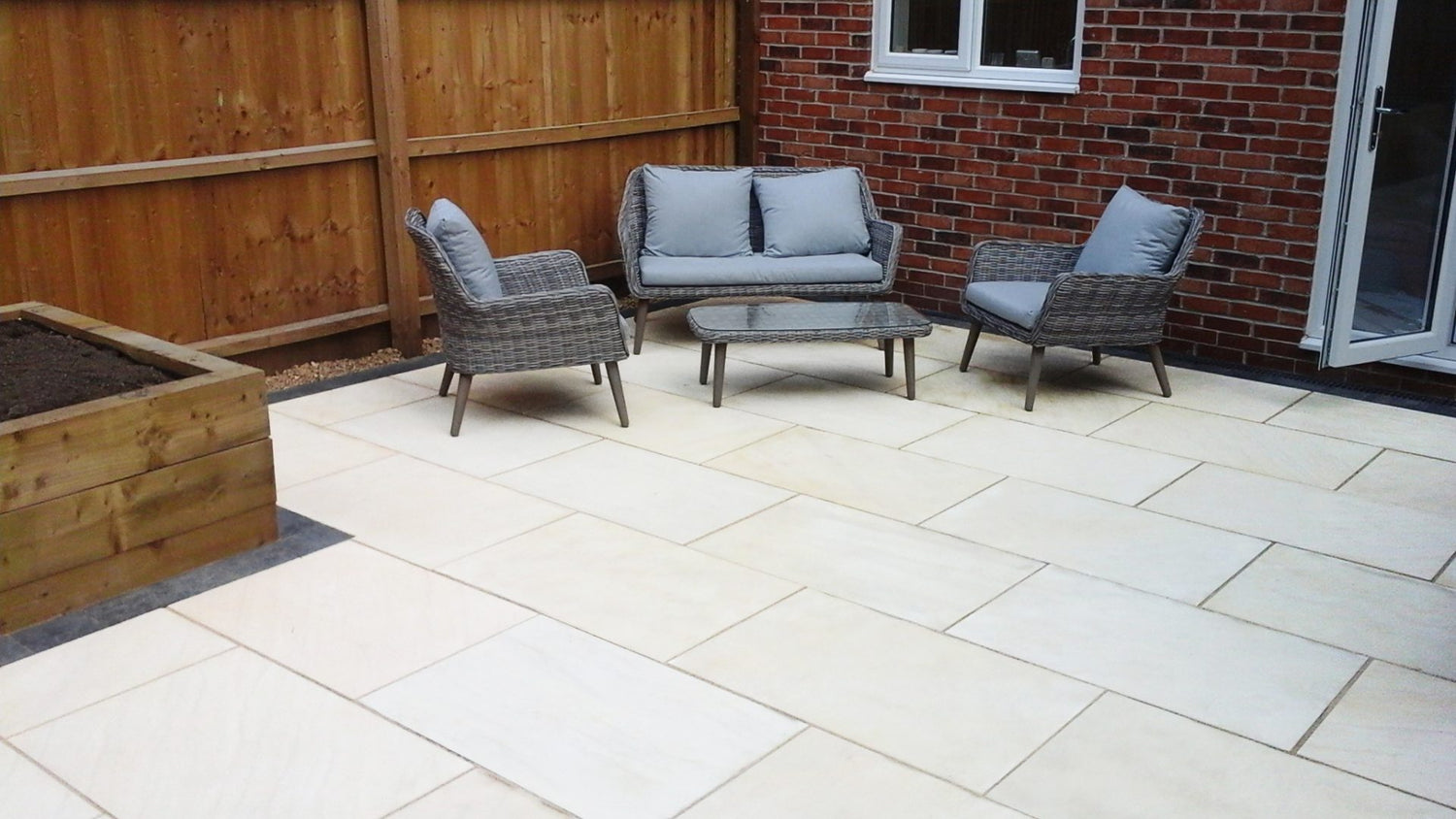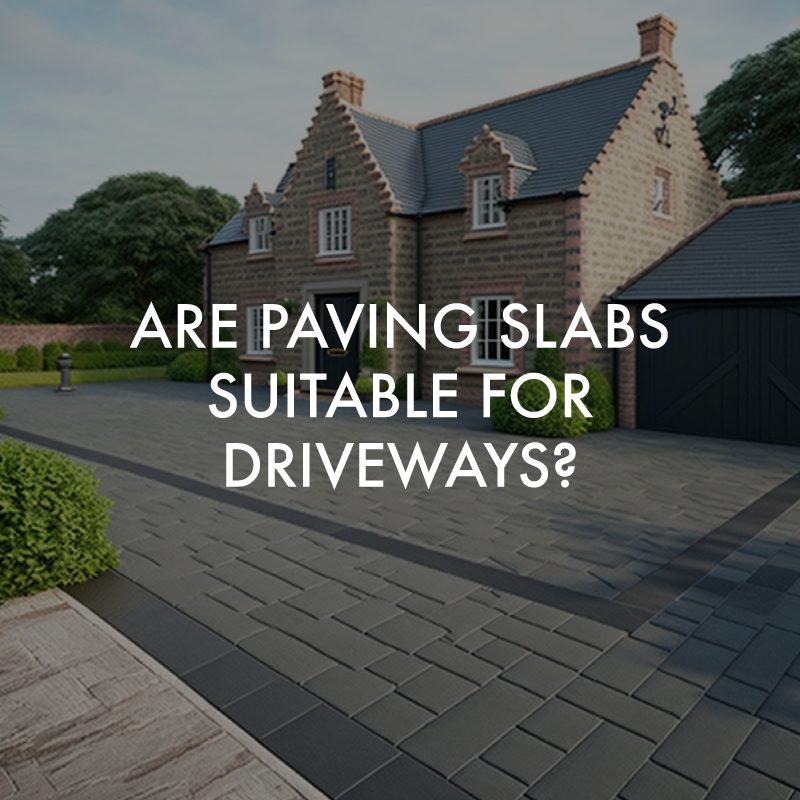
Are paving slabs suitable for driveways?
Share
This is a question many homeowners ask when it comes to choosing the right type of driveway surface for their home. The answer is yes, but not all paving is suitable for use on driveways. In this article, we'll explore the best types of paving for driveways, how to perfect the sub base for a strong and sturdy driveway, and what makes a good sub base.
What paving is best for driveways?
Paving slabs are suitable for driveways, but not all paving is suitable for this purpose. When choosing the best paving for your driveway, it's essential to select paving flags of at least 50mm thick and perfect the sub base for a strong and sturdy driveway.
How thick should paving be for driveways?
When it comes to choosing the right type of paving for your driveway, it's essential to select paving flags that are at least 50mm thick. Thinner, more delicate paving won't be able to withstand the weight and pressure of vehicles rolling across it on a daily basis, not to mention the constant weight when a car is parked up. Paving flags of at least 50mm thick will be stronger, sturdier, and much more able to last many years as part of your driveway.
Does my driveway paving need a sub base?
Even if you choose the right paving, your driveway won't be durable if you don't get the sub base right. The sub base layer is the most important component of a strong and long-lasting driveway. It's this layer that will make sure your driveway can withstand the weight and pressure of vehicles and that your paving doesn't bear the brunt of it. Without a well-laid sub base, your driveway will be much less durable and won't be able to last you as long as you would hope, no matter what type of paving you use.
What to use as a paving sub base for a driveway
A good sub base is made up of crushed rocks, large and small. It's recommended to use a sub base called DT Type 1, which is made up of varied sizes of crushed rocks, ranging from up to 40mm large to dust. This varied mix allows the sub base to interlock when pressure is put on it, creating a strong support for your driveway. The sub base also helps the driveway to drain away any water that lands on it.
To perfect the sub base, it's vital to compact it using a roller and lay it in several thin layers to make up the recommended 150mm. This will ensure the very best levels of compaction and drainage, prolonging the life of your driveway.
What is the best paving for driveways?
Sandstone, limestone slabs, and granite are the most common types of natural stone paving used for driveways. These materials are strong and durable, but they require more maintenance than some other materials. Porcelain paving slabs are an excellent option for driveways as they are strong, durable, and require less maintenance. They're also available in a range of sizes, colors, and finishes, allowing you to choose the perfect style to complement your home's exterior. Porcelain paving is also non-porous, which means it won't absorb water, making it an excellent choice for driveways.
Does the size of the paving slab or the laying pattern matter for driveways?
The size of the paving slabs and laying patterns need to be considered when choosing the best paving for your driveway. Larger paving slabs can create a more modern and contemporary look, while smaller slabs are more traditional. The laying pattern can also have an impact on the overall look of your driveway. A simple, straight lay pattern is the most common and cost-effective option, while more intricate patterns such as herringbone or basketweave can create a more visually appealing design.
Related Posts
-

UK Garden Statistics and Trends 2024
UK Garden Statistics and Trends 2024 General UK Garden Statistics The vast majority of UK households have access to ...
-

Can I lay Paving on Soil or Mud?
Technically, yes – you can lay paving stones or slabs directly onto exposed topsoil however, laying a sub-base will e...
-

How Much Does a New Patio Cost?
A new patio in the UK typically costs between £80-£150 per square meter. For a 40-50 sqm patio, expect to pay £2,000-...
-

What Different Sizes Do Paving Slabs Come In?
When planning a patio or outdoor paving project, one of the key decisions is choosing the right size paving slabs. ...
-
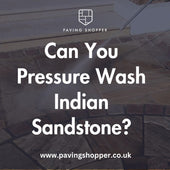
Can You Pressure Wash Indian Sandstone?
Indian sandstone is a popular choice for outdoor paving due to its durability and attractive appearance. However, li...
-
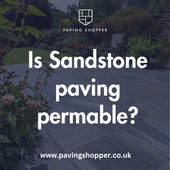
Is Sandstone Paving Permeable? Is it porous?
Sandstone's porous nature enables it to absorb rainfall, qualifying it as a permeable paving variety. However, seali...
-
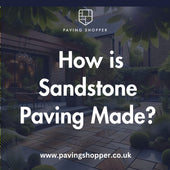
Where Does Natural Sandstone Paving Come From?
Sandstone begins deep underground, formed over eras as minerals and sediments fused under pressure. Powerful forces ...
-

5 Paving Ideas for Small Gardens: Maximise Your Outdoor Space
Front of House When considering paving ideas for the front of your house, it's crucial to select ones that complem...
-

9 Paving Ideas for Front of House: Enhancing Curb Appeal with Style
The facade of a house plays a pivotal role in defining its character and curb appeal, and the choice of paving can s...
-

9 Summer Garden Paving Ideas UK
Summer gardens offer a vibrant canvas for homeowners to express their style while enhancing outdoor living spaces. G...
-

8 Garden Paving Ideas for 2024
It's time to refresh your garden's look for 2024 and an easy way to do that is with some new paving. With so many opt...
-
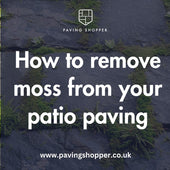
How to remove moss from patio paving
Moss growth is a common issue for patio paving, especially in damp, shaded areas. While moss may seem harmless, it ca...
-
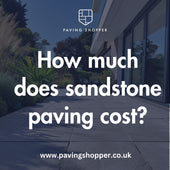
How much does sandstone paving cost?
When choosing new garden pavers, sandstone offers homeowners an enticing middle-ground - more durable than basic conc...
-

Why Do Paving Slabs Crack And How To Repair Them
Seeing cracks appear on your patio or driveway can be disheartening after investing time and money into installing be...
-

How to lay paving in winter (Tips & Tricks)
How Cold Temperatures Impact Paving Projects The primary concern when working in cold weather is ensuring proper curi...
-

Sub Bases For Patios
Building the Perfect Patio Base: A Comprehensive Guide When planning an outdoor living space, understanding proper ba...
-

Pros and Cons of Porcelain Paving
Are you considering adding porcelain paving to your outdoor space? It's important to weigh the pros and cons before ...
-

Understanding Paving Slip Ratings: A Comprehensive Guide
A paving slip rating, also known as a slip resistance or anti-slip rating, is a measure of how slippery a surface...
-

Stunning Garden Water Feature Ideas - Enhance Your Outdoor Space
Garden water features are decorative elements that incorporate water into a garden, adding beauty and a sense of ...
-
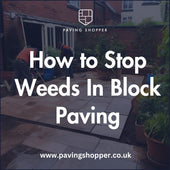
How to Stop Weeds in Block Paving: Expert Tips andTricks
Weeds growing between the blocks of your paving can be an unsightly and frustrating problem. Not only do they make y...
-
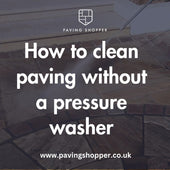
How to clean paving without a pressure washer
A patio cleaner is a cleaning solution designed specifically for removing dirt, grime, and stains from outdoor patio...
-

How to Grout Paving Slabs – Expert Tips and Techniques
Pointing paving slabs is an important step in the process of installing them. Grout is a mixture of cement, water...
-
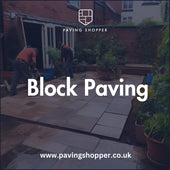
Block Paving Guide | What Does it Cost? | How Much Per m2?
Block paving is a versatile and durable option for creating driveways, patios, and paths. This method involves using...
-
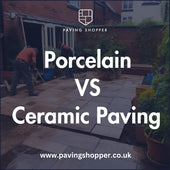
Porcelain VS Ceramic Paving
Porcelain paving is non-porous and more durable than ceramic paving, which is more porous and prone to stains and wea...
-
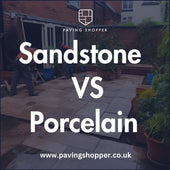
Sandstone V Porcelain Paving - (Style Comparison and Distinctions)
When choosing materials for your patio or driveway, two of the most popular options are sandstone paving slabs and p...
-

Understanding Gradients and Falls for Paving and Drainage (2024)
When it comes to paving and drainage projects, understanding the correct gradients and falls is essential for ensuri...
-
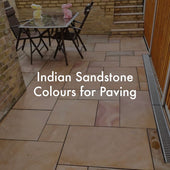
Indian Sandstone Paving Colours for A Patio - A Comprehensive Guide
Indian sandstone is one of the most popular paving materials, celebrated for its natural beauty and the variety of co...
-

Jointing and Pointing For Paving (Sand & Cement Mix)
Patio pointing is important for both looks and durability. It protects the layers under your paving, stops weeds, and...
-

How to Lay Paving on Sand and Cement: Expert Advice and Tips
Paving on Sand and Cement: A Comprehensive Guide When it comes to enhancing your outdoor space, paving is a popular ...
-

Pros and Cons of Sandstone Paving
Pros & Cons of Indian Sandstone Paving Indian sandstone paving is a natural and durable option that adds both bea...
-
Does Patio Paving Need Edging? A Comprehensive Guide
In this article, we'll explore the importance of patio edging, the different types of edging materials available, and...
-

Pet Friendly Paving - What is the best paving for a dog-friendly garden?
Creating a dog-friendly garden requires choosing the right paving materials to ensure your furry friends can enjoy t...
-

Patio Paving Laying Patterns Guide
Paving patterns can transform an ordinary outdoor space into a stunning and eye-catching area that complements your ...
-
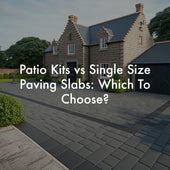
Patio Kits vs Single Size Paving Slabs: Which To Choose?
When designing a patio or outdoor space, one crucial decision is whether to use a patio kit (also known as patio pack...
-

How much paving do you need to cover your outdoor space?
Planning an outdoor paving project is exciting, but it’s crucial to accurately estimate the amount of paving needed b...
-

What is the Best Paving for Patios?
When it comes to choosing the best paving for patios, there are a variety of factors to consider, such as durability,...
-
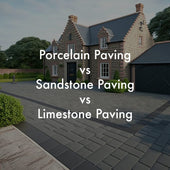
Sandstone v Limestone v Porcelain: The Pros and Cons of Different Garden Paving Materials
Transforming your outdoor space involves choosing the right paving material, and porcelain and sandstone are two of t...
-
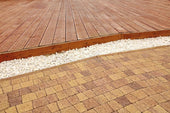
Are Paving Slabs Cheaper Than Decking?
Transforming your backyard into the ultimate outdoor oasis can be challenging when choosing between paving slabs or d...
-

How to lay a patio - An expert guide to laying paving slabs and patterns
There are a few things to consider before laying a patio, such as the type of paving stones and the laying pattern. Y...
-
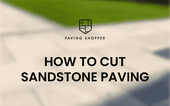
How to cut Sandstone Paving?
When it comes to prepping your garden for a new patio, you may consider different designs that require your paving to...









































